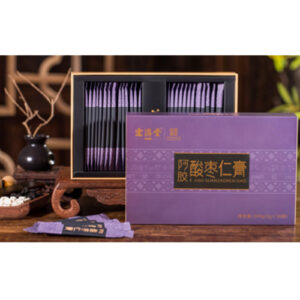The quality and authenticity of herbal pastes play a crucial role in determining their effectiveness and safety for consumers. Here's how quality and authenticity are essential:
1. Ingredient Quality:
Efficacy: The quality of herbal ingredients directly affects the effectiveness of the paste. Fresh, potent, and uncontaminated herbs are more likely to yield the desired therapeutic effects.
Safety: High-quality herbs are less likely to be contaminated with pesticides, heavy metals, or other harmful substances, reducing the risk of adverse effects.
2. Preparation and Processing:
Correct Techniques: The use of proper techniques during the preparation and processing of herbal pastes ensures that the active compounds are extracted effectively.
Optimal Formulation: The correct blending of herbs and precise processing steps contribute to the paste's therapeutic properties.
3. Authenticity:
Sourcing: The source of the herbs should be authentic and traceable, ensuring that consumers receive the herbs they expect.
Traditional Practices: Authentic herbal pastes follow traditional practices and formulations that have been proven effective over time.
4. Contamination and Adulteration:
Safety: Poor-quality or adulterated ingredients can pose health risks, so consumers need assurance that the herbal paste is free from contaminants.
Effectiveness: Contaminated or adulterated pastes may not deliver the expected therapeutic benefits.
5. Standardization:
Consistency: Quality control and standardization processes ensure that each batch of herbal paste is consistent in terms of potency and composition.
Dosage Accuracy: Standardization helps maintain the paste's efficacy by providing the correct dosage of active compounds.
6. Regulatory Compliance:
Legal and Safety Standards: Compliance with regulatory standards and safety guidelines is essential to ensure the safety and legality of herbal pastes.
Consumer Confidence: Meeting regulatory requirements instills confidence in consumers regarding the quality and safety of the product.
7. Authentication:
Product Labels: Clear and accurate product labeling helps consumers identify authentic herbal pastes and understand their ingredients, usage, and dosage.
Third-Party Testing: Independent, third-party testing can provide additional assurance of product authenticity and quality.
8. Ethical Sourcing:
Sustainability: Ethical and sustainable sourcing practices are essential to minimize the impact on the environment and support responsible harvesting of herbs.
In summary, the quality and authenticity of herbal pastes are essential for ensuring that consumers receive a safe and effective product. Substandard or adulterated pastes may not provide the intended therapeutic benefits and can pose health risks. Consumers should look for products from reputable sources, consider third-party testing,
China Herbal Paste supplier and consult with healthcare professionals or herbalists when using herbal pastes for specific health needs.
How are herbal pastes traditionally used in natural and alternative medicine practices around the world?Herbal pastes have a rich history in natural and alternative medicine practices worldwide, and they are traditionally used in various ways. Here are some common traditional applications:
1. Topical Applications:
External Ailments: Herbal pastes are applied topically to the skin for the treatment of wounds, burns, rashes, insect bites, and skin conditions. They may have anti-inflammatory, antimicrobial, and soothing properties.
2. Poultices:
Wound Healing: Herbal pastes are often used to create poultices for wounds, sprains, and bruises. These poultices can help reduce pain, inflammation, and promote healing.
3. Herbal Compresses:
Localized Relief: Herbal pastes are sometimes combined with other ingredients to create compresses for specific ailments. For example, they can be used as chest compresses to relieve respiratory congestion.
4. Dental Care:
Oral Health: In some traditional practices, herbal pastes are used for oral hygiene. They may contain herbs with antimicrobial properties to support gum health and prevent tooth decay.
5. Liniments:
Muscle and Joint Pain: Herbal pastes are used to make liniments applied to sore muscles and joints. These liniments provide relief from pain and inflammation.
6. Digestive Remedies:
Gastrointestinal Ailments: Herbal pastes, especially those containing digestive herbs, are ingested to address digestive issues like indigestion, nausea, and diarrhea.
7. Ayurvedic Medicines:
Ayurveda: In Ayurvedic medicine, herbal pastes known as "lepa" are used in a variety of therapeutic applications, such as skin conditions, arthritis, and to support general well-being.
8. Traditional Chinese Medicine (TCM):
Herbal Patches: In TCM, herbal pastes are applied as patches, often infused with herbal formulas, to address specific conditions. For example, pain-relieving patches are used for sore muscles and joint pain.
9. Indigenous Medicinal Practices:
Cultural Remedies: Indigenous cultures often use herbal pastes as part of their traditional healing practices. These pastes may be specific to each culture and are used for a range of ailments.
10. Traditional Ointments:
General Healing: Herbal pastes may be used as general healing ointments. They are applied to the skin to promote overall wellness and well-being.
11. Rituals and Ceremonies:
Spiritual and Ceremonial: In some cultures, herbal pastes are used in rituals and ceremonies for spiritual purposes, purification, or protection.
It's important to note that the specific herbs and ingredients used in herbal pastes can vary widely depending on the cultural and regional context. Traditional knowledge, passed down through generations, often guides the preparation and use of these pastes. While traditional uses of herbal pastes are deeply ingrained in many cultures, it's also important to consider individual variations and modern scientific research when using these remedies for health and wellness. Consulting with qualified practitioners or herbalists can provide valuable guidance on the appropriate use of herbal pastes for specific conditions.

